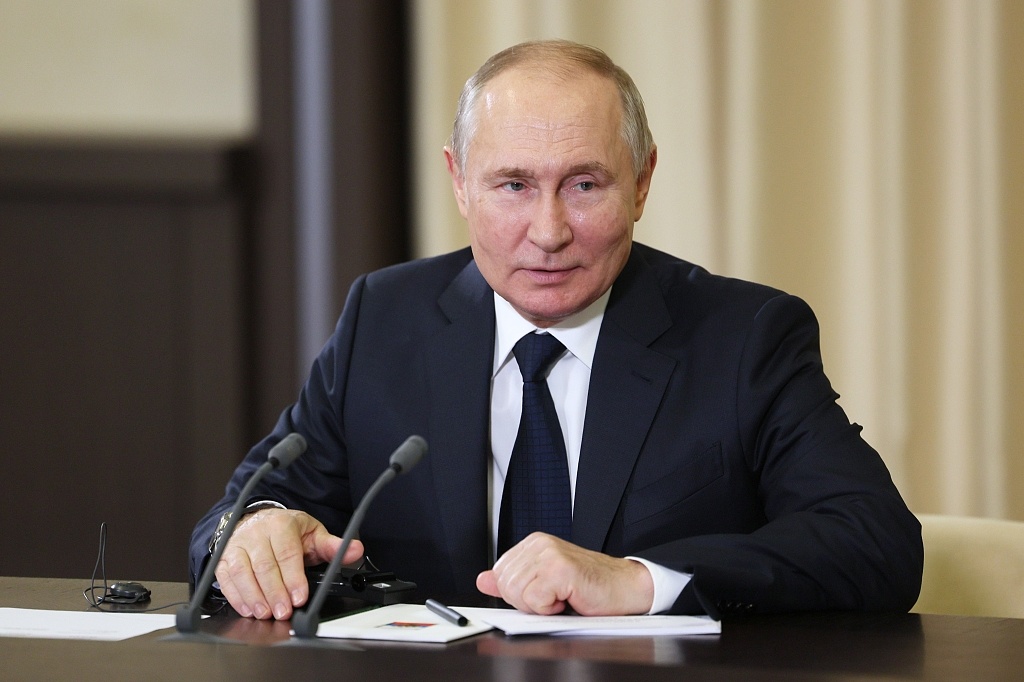
Russian President Vladimir Putin meets with visiting Vice Chairman of China's Central Military Commission (CMC) General Zhang Youxia in Moscow on November 8, local time. (Xinhua Vision)
By Li Linjia, Guo Yuandan and Liu Yupeng
Russian President Vladimir Putin met with the visiting Vice Chairman of China's Central Military Commission (CMC) General Zhang Youxia in Moscow on November 8, local time. Russian Defense Minister General Sergei Shoigu held a talk with Zhang on the same day.
When meeting with Zhang Youxia, Putin said that the cooperation between the Russian and Chinese militaries in various fields has a good momentum of development with fruitful results and has played an important role in safeguarding the strategic security of the two countries. Zhang said that in recent years, the development of mil-to-mil relations between China and Russia has maintained a strong momentum and has numerous highlights in cooperation in various fields.
Military expert Song Zhongping said that from October 30 when Shoigu attended the Xiangshan Forum in Beijing and delivered a speech to November 8 when Zhang Youxia visited Russia, there had been frequent interactions between the top military officials of China and Russia. This was obviously not a temporary arrangement. Zhuo Hua, an expert on international issues at the School of International Relations and Diplomacy at Beijing Foreign Studies University, said that the China-Russia comprehensive strategic partnership of coordination is currently at its highest level in history. The high-frequency strategic consultation between the two militaries reflects and deepens the strategic mutual trust between China and Russia, and it will further deepen their military cooperation.
Shoigu pointed out at the Xiangshan Forum in Beijing that NATO countries, including the UK, France, Germany, the Netherlands and Italy, are increasing their navy, air force and other military presence in the Asia-Pacific region, and increasing the frequency and scale of multilateral military exercises. Such actions contribute to militarization and stimulate an arms race, said Shoigu.
"At present, the major Western powers are sparing no effort to promote geopolitical competition, intensifying the expansion of NATO military groups into the Asia-Pacific region, and shaping small military groups and circles in the Asia-Pacific region. This directly threatens the security of China and Russia, and leads to the deepening of security conflicts and security hot spots in many regions of the world," Zhuo said. He believes that it is precisely because of this international background that China and Russia need to maintain high-frequency and high-level communication, coordinate international positions, safeguard their own security, and jointly defend international fairness, justice and security order.
Zhuo emphasizes that the development of relations between the two militaries on bilateral and multilateral platforms is fundamentally oriented toward jointly building a global community of security for all. The two sides adhere to a "common, comprehensive, cooperative, and sustainable security concept", aiming to solve common international and regional security issues rather than seeking confrontation against third parties.
On November 9, the Russian Sputnik News quoted experts as saying that Russia and China will not provoke any arms race in reaction to NATO's plan to expand its influence in Asia, and their restrained response to NATO's plans would not pose a threat to Asian countries. The two countries will also not establish a military alliance. Both Russia and China know that although their positions are the same, the challenges they currently face are different.
Editor's note: Originally published on huanqiu.com, this article is translated from Chinese into English and edited by the China Military Online. The information and opinions in this article do not necessarily reflect the views of eng.chinamil.com.cn.













